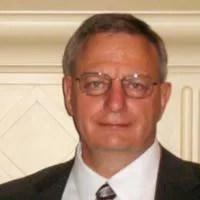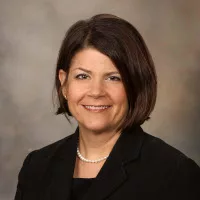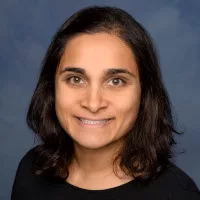Change in WMAA’s Corporate Status
Many alumni may not realize that WMAA was created in 1956 as a non-stock corporation. Over the past 64 years, the landscape has changed significantly.
These three University of Wisconsin graduates chose nephrology as their specialty and share with Quarterly what they’ve been doing in the years since graduating.

After an internal medicine residency at a University of Wisconsin School of Medicine and Public Health (SMPH) affiliate in Milwaukee, followed by a nephrology fellowship in St. Louis, I returned to Milwaukee to work at my home training hospital for the next 10 years. I then migrated to Dallas, where I worked for the past 30 years. I was involved with general nephrology for several years, and I ultimately got involved with practice management, serving as the compliance officer for 15 years. In my final years working, I directed the nephrology fellowship program for a large local training center. I am now retired, but I still dabble in fellowship education, and I have started to create a nephrology reference electronic library for my group.
I chose nephrology during my fourth year of medical school. Drs. David Simpson, Richard Rieselbach (nephrology) and Peter Burkholder (renal pathology) were role models at the SMPH. Nephrology appealed to me because nephrologists seem to have unique insights into the workings of the entire body, rather than a single organ system.
A memorable case involves my discussions with an elderly English professor who was approaching end-stage renal disease. He taught me a lot about life and death with those frank discussions. Ultimately, he chose conservative, non-dialytic support and died 10 months later without ever feeling bad or having a hospitalization. It was my first venture into palliative nephrology, decades before the discipline existed.
My advice to medical students (not just for nephrology) came to me from Dr. Donald Khan (cardiovascular surgery), who was my mentor during medical school. He told me that your medical career really has only two goals: to find your passion (which is hard), and to put in enough time and effort to become good at it (which is harder yet).

I completed an internal medicine residency and nephrology fellowship at Mayo Clinic in Rochester, Minnesota, and in 2001, I joined its faculty. I am the director of the nephrology fellowship, vice chair of the Division of Nephrology and Hypertension, and assistant dean for student competency and professional standards for the Mayo Clinic Alix School of Medicine.
As a general nephrologist, I care for patients with a variety of acute and chronic kidney problems, including those with kidney transplants and those requiring dialysis. For nearly 15 years, I cared for a gentleman who had steroiddependent focal segmental glomerulosclerosis and slowly progressive chronic kidney disease. We found a regimen that minimized steroid exposure, prevented relapses and avoided end-stage kidney disease. I will always remember how he and his wife approached his chronic illness, complicated medication regimen and dietary restrictions with graciousness and humor. When he eventually died from an unrelated illness, it almost felt as though I had lost a family member.
I found the nephrology subject matter challenging in medical school. In a residency rotation on the kidney transplant service, I saw how a transplant could tremendously improve quality of life. This helped me realize that I could master the field’s steep learning curve.
Involvement with the American Society of Nephrology (ASN) has allowed me to develop education leadership skills and work with incredible colleagues nationwide. I have served as a member of education-related committees and now chair the ASN’s Continuous Professional Development Committee. I encourage medical students and residents to consider nephrology. We care for patients with disorders across the spectrum of severity, develop long-term relationships with patients and work on multidisciplinary teams. We are able to make a difference in people’s lives.

I am an associate professor of medicine at the Medical College of Wisconsin in Milwaukee. I also am the chief of the Section of Nephrology at the Veterans Administration Medical Center, where I care for veterans with kidney disease, including disorders of electrolytes, resistant hypertension, vasculitis and kidney stones. I conduct research on cognitive and functional outcomes in older adults with kidney disease.
Nephrology allows for long-term physician-patient relationships. I have been a nephrologist for seven years and have known some of my patients that long. They often ask how my “babies” are doing, as they remember my pregnancies from four and seven years ago. Usually, we both are surprised at how much time has passed.
A memorable patient early in my career was a veteran with years of resistant hypertension on seven blood pressure medications. I found his hypertension was due to hyperaldosteronism, and he had the hyperactive gland removed. At our next visit, he was bursting with excitement, eager to tell me how great he felt after being able to stop all those pills. A simple diagnosis had changed his life.
The opportunity to treat a wide variety of acute and chronic diseases makes this field appealing to me. I discovered my enthusiasm for nephrology during my internal medicine residency at the University of Michigan. In hindsight, I remember my interest during the renalrespiratory unit in medical school, when Dr. A. Vishnu Moorthy explained how to interpret arterial blood gases.
Nephrology can be humbling, challenging and rewarding. The field is diverse and has something for everyone, but most nephrologists enjoy solving a good puzzle.